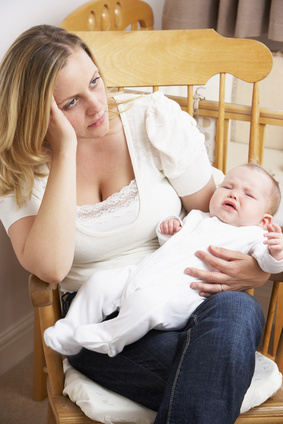 Accepting our struggles and getting support with them is a difficult challenge for many of us. Thoughts that we are weak and fears of being judged often lead us to try to ignore our problems. When we find ourselves in situations where social and cultural expectations are that we should not be struggling, the challenge of getting help can be even more heightened.
Accepting our struggles and getting support with them is a difficult challenge for many of us. Thoughts that we are weak and fears of being judged often lead us to try to ignore our problems. When we find ourselves in situations where social and cultural expectations are that we should not be struggling, the challenge of getting help can be even more heightened.
Such social and cultural expectations abound when a woman becomes a mother. “You must be so excited!” is just an example of the sentiment regularly conveyed to mothers of newborns. But the reality is that many new mothers suffer from the “baby blues,” feelings of sadness following the birth of a child. In fact, nearly 20% of mothers will experience post-partum depression. Post-partum depression, also known as postnatal depression, is a serious mental health condition that often requires treatment. Symptoms include:
- Loss of interest, motivation, and pleasure in activities, including self and family.
- Inability and/or lack of interest in caring for baby;
- Crying spells;
- Irritability;
- Fatigue, loss of energy, insomnia, and excessive sleepiness;
- Decreased concentration;
- Feelings of worthlessness, guilt, helplessness, or hopelessness;
- Thoughts of suicide or of harming others, often your baby.
Obviously, such symptoms not only negatively impact you but can affect your baby because of your difficulty to bond. Indeed, post-partum depression disrupts the bonding process between mother and child, arguably the most important task of infancy. Post-partum depression can also impair your relationship with your partner and the rest of your family, as well as interfere with other areas of functioning.
Because managing it on your own is a difficult feat, getting help with your post-partum depression is essential. Therapy can reassure you that you are not alone, and that postpartum depression is not a character flaw or a weakness. You are not to blame.
 Dr. David Prybock is a therapist in Pittsburgh. He regularly works with individuals who experience pregnancy loss, fertility issues, and postpartum depression.
Dr. David Prybock is a therapist in Pittsburgh. He regularly works with individuals who experience pregnancy loss, fertility issues, and postpartum depression.